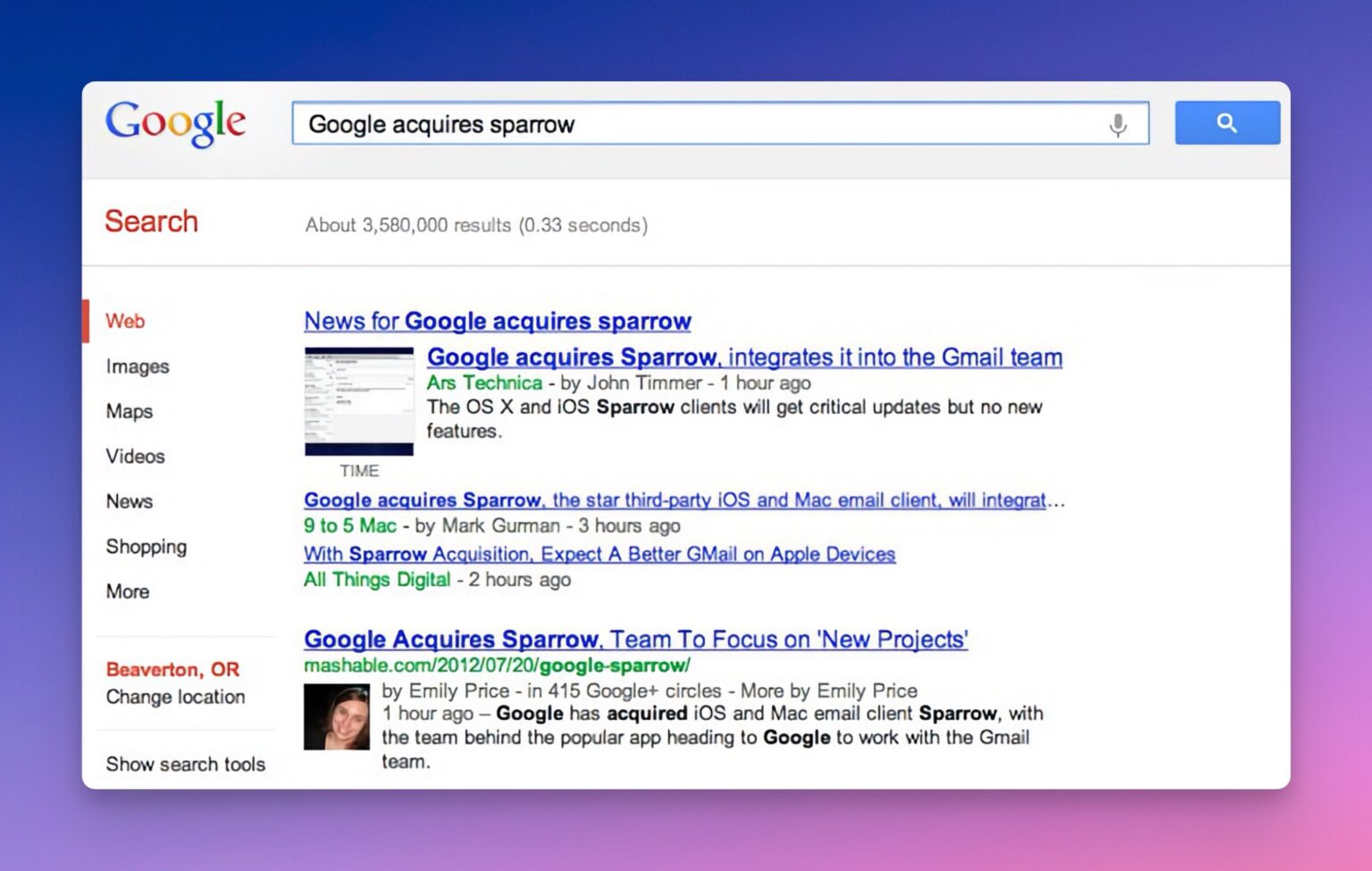I guess congratulations are in order. Dom Leca posted on his company blog that Sparrow, the fantastic email client for Mac and iOS, has been acquired by Google.
In the same breath Dustin MacDonald writes on the Acrylic blog that the company—makers of Pulp and Wallet—is being acquired by Facebook.
This is such great news for Dom, Dustin, and their teams. Really, great payoff for the hard work of developing innovative apps that have certainly found a home in my workflow. But this point gets me, from Dustin:
Facebook is an invaluable service that we all use daily, and a company I believe is one of the most innovative and important around today. After visiting late last year, I discovered that we shared many of the same core product design goals and principles, and it soon became obvious that it was a natural fit. Simply put, there’s an opportunity at Facebook to have a big impact in many people’s lives. More importantly, Facebook is full of extremely talented people who will be able to help realize its full potential in the years to come.
I have to imagine Dom shares some of that feeling for Google. It’s great. The thing is, the apps that these guys and their teams were turning out were _already_ serving an invaluable service for me and my business. Facebook is a social tool with large and mostly-anonymous teams of engineers. They’re doing great work, but for the most part I don’t know who they are, and their contributions are completely transparent to me in my daily use.
But Sparrow, Pulp, and Wallet? I invested in those apps, and would have continued to invest in those apps, because they provide a service to me that is direct and tangible. Maybe—_maybe_—I could make the case with Google. But I’m pretty sure I won’t feel Dom’s hands in the mix in my use of Google services. I’m dead sure I won’t feel the impact of Dom’s team at Facebook.
By acquiring these companies, Google and Facebook killed a little bit of ecosystem today. They just absorbed creativity, individuality, and art, and re-branded the energy that comes of it as their own. That’s a sad mark on the independent software development community, and a loss to the hundreds of thousands of users who count on these products to continue to grow and thrive.
So again, congratulations. You will be missed.
Marco Arment adds this in his thoughtful post on the issue, which is too good not to update:
If you want to keep the software and services around that you enjoy, do what you can to make their businesses successful enough that it’s more attractive to keep running them than to be hired by a big tech company.

